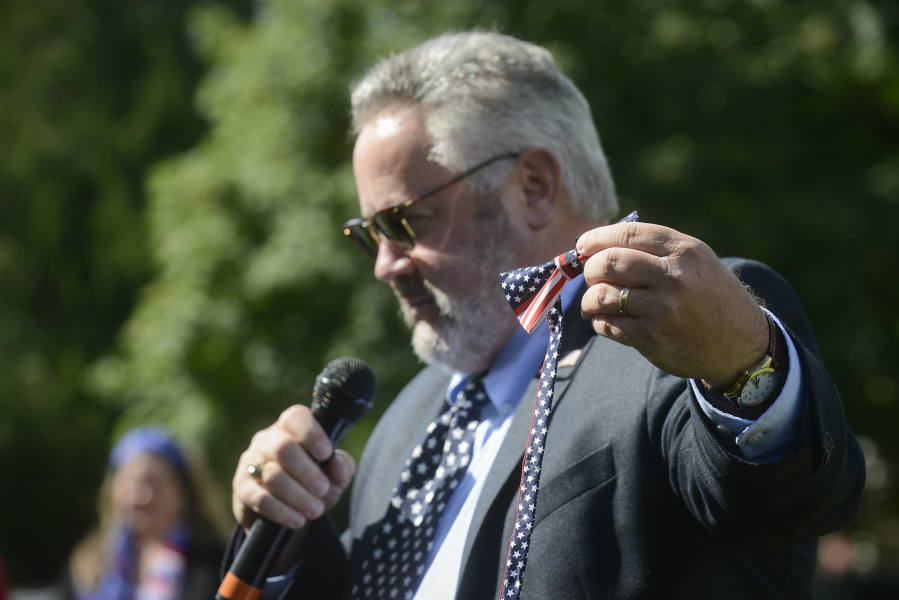WASHOUGAL — The Washougal City Council’s first attempt at a vote to restrict personal firework use in the city fizzled out, but Councilor Brent Boger re-lit the same fuse later in the meeting to more success.
The council voted to allow only the use of “safe and sane” fireworks, which the city identified as ones that are neither projectile or explosive, such as fountains, sparklers, smokeballs and pinwheels. The vote comes after a year of discussion about the issue, in which councilors were looking at banning fireworks outright, restricting the times residents can use fireworks or keeping the regulations the same as they are. Currently, the city allows the discharge of fireworks on July 4 from 9 a.m. to midnight and Dec. 31 from 6 p.m. to 1 a.m.
At Monday’s meeting, the first time the council voted for the “safe and sane” option, it failed with Councilors Michelle Wagner, Ray Kutch, Dave Shoemaker and Dan Coursey voting against it. The vote came a week after the council voted 4-3 in favor of banning them altogether. Shortly after that meeting, Mayor Sean Guard announced he was vetoing their vote. The mayor has 10 days to veto a council decision, and then the council has a chance to override the veto if a majority of the council plus one vote to override. Since Washougal has seven councilors, they needed five to vote to override.
At Monday’s meeting, the councilors were deciding whether to try to override Guard’s veto — which would cancel out any action regarding fireworks and revert the city to its current regulations — or to vote for the “safe and sane” option.
After the “safe and sane” option failed, councilors voted on whether to override Guard’s veto, but that motion failed, with Wagner, Paul Greenlee, Kutch and Coursey voting against it. Boger then asked Shoemaker if he’d consider changing his vote on the “safe and sane” option, and Shoemaker said he would, since the council has “discussed this to death.”
“This is bordering on absurd,” Wagner said. “We don’t keep voting and voting and voting.”
She suggested tabling the discussion, reaching out to residents in the city survey next year and coming back to the discussion. Instead, the council voted again on the “safe and sane” option, and that time it passed with Shoemaker switching his vote.
“Why don’t we reconsider it,” Wagner joked after the vote.
The new rules will start in December 2018, although it’s still possible for the city to discuss the issue. Shoemaker is leaving office at the end of the year, and Julie Russell will take over his seat. Kutch said they could bring it up once she joins the council.
The idea was also thrown out that if residents got enough signatures, it’s possible they could get the issue on a ballot for public vote.
Before the council vote, city officials sent out a survey to Washougal residents asking them for their thoughts on the discussion. The city received approximately 1,000 responses from residents, according to City Administrator David Scott:
• 33.3 percent favored a complete ban.
• 10 percent were in favor of further restricting the time period when fireworks can be used, but not the types.
• 10.5 percent were in favor of restricting the types and the time period.
• 4.7 percent were in favor of restricting types, but not the times when fireworks can be used.
• 41.5 percent were in favor of making no changes.
Veto power
Guard has been mayor since 2010 and has only used his veto power once before — early in his first term, according to Scott. Guard vetoed an ordinance because it was introduced one evening by a councilor and passed by the council, but the ordinance wasn’t vetted by the city attorney or staff about its format and coordination with other parts of the code.
Staff worked with the councilor to revise the ordinance and address some format and coordination issues, and the council approved it at the next meeting. No override discussion occurred.
“It really was not the same kind of situation,” Scott said.




